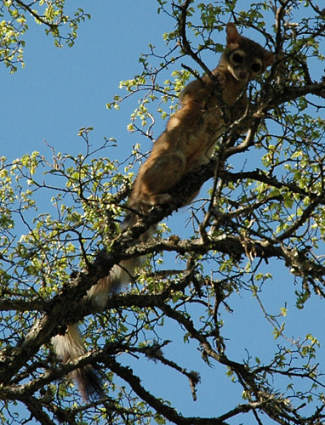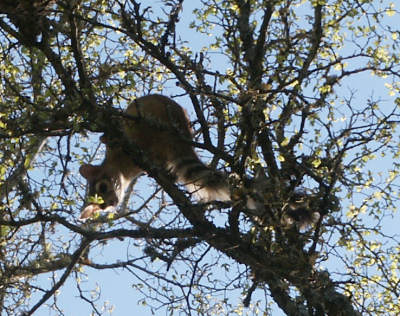
Ringtail
Bassariscus astutus
March 12, 2005
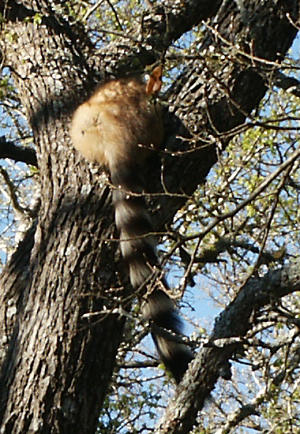 |
On a walk with a group of friends, one of them, Carolyn B-, spotted a striped tail
hanging out of a tree and asked what it was. To my surprise and delight (and the delight of
everyone who was along on that trip) it was a Ringtail (also known as Ringtailed Cat or Miner's
Cat.) This small omnivorous animal is normally nocturnal, so finding one out in broad daylight
(between 4 and 4:30 pm) is very unusual. So is the habitat where we found this one--they prefer
rocky areas, such as canyons and steep rocky hillsides, though they're also found in some riparian
woods. Several years ago, we thought we might have seen some young ringtails in the creek woods,
but it was almost dark, and all we could tell was that the animals had striped tails, were smaller
than raccoons, and seemed to move differently. Ringtails are smaller than raccoons, but their fur is considered more valuable--though I have no intention of trapping one of these charmers for its fur. A friend who used to hunt them on the family ranch in SW Texas says they are fierce fighters when cornered, more dangerous to a dog, for instance, than a raccoon. The fur, he says, is wonderfully dense and soft. Ringtails eat a wide variety of foods: mice and other small mammals, small birds, eggs, insects such as grasshoppers, scorpions, and wild fruits and berries in season. Great horned owls and bobcats are their chief predators. |
|
|
|
|
|
|
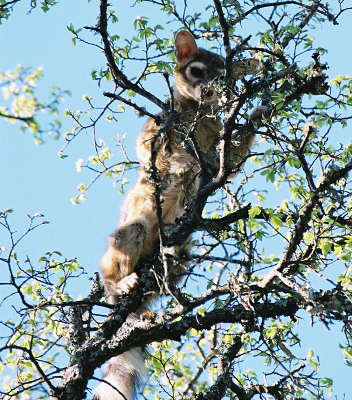 |
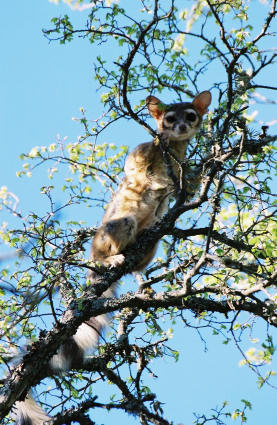 |
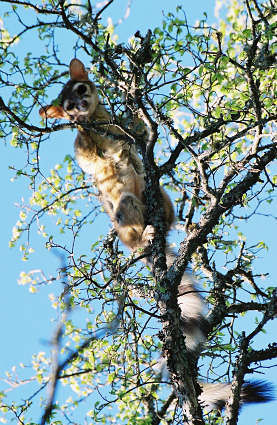 |
These three pictures, all taken by L. Domitz, show the facial markings very clearly. One
description calls the face "marten-like," with a weasel-shaped snout. The white markings around the
eyes and muzzle are like a reverse of the raccoon's black mask. The large delicate ears contribute
to a "chihuahua" expression. Another guest mentioned that it looked a little like a
lemur. But like all creatures, it is uniquely itself, and it was a thrill to see--especially with camera-bearing company in tow. |
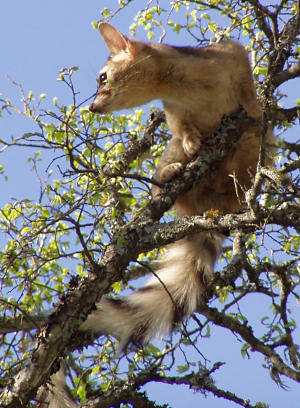 |
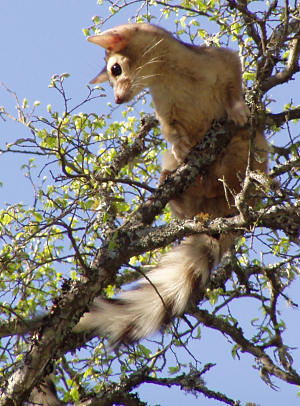 |
| In these two pictures, courtesy of R. Duhon, the underneath markings show more clearly, as well as the facial profile. Note the very long whiskers, useful for an animal that hunts by night. Some sources say the paws have retractile claws, others say semi-retractile, and some non-retractile...but for hanging onto small branches like these, the claws are in use. | |
![]()
